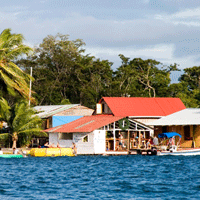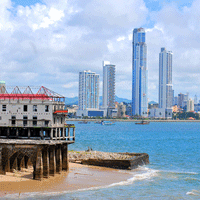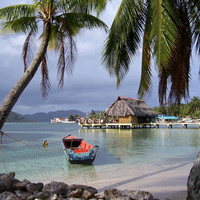Panama
Coastal BeachesPanama is a country located at the junction of Central and South America, known for its famous Panama Canal, which serves as a conduit for maritime trade connecting the Atlantic and Pacific Oceans. The country's landscape is characterized by a diverse range of features including tropical rainforests, mountains, and extensive coastlines with beautiful beaches. Panama City, the capital, is a modern, cosmopolitan city that contrasts with the indigenous cultures found in more remote areas. The country's rich biodiversity is evident in places like the Darién Gap and the many national parks and wildlife sanctuaries. Panama's economy is service-based, heavily centered on banking, commerce, and tourism. Despite its small size, Panama has a vibrant cultural scene, with influences from Afro-Caribbean, indigenous, and Latin American heritages. Festivals, music, and dance play a significant role in Panamanian social life. The country's climate is tropical with a wet and dry season, and due to its geographical position, it is largely hurricane-free. Panama also serves as a gateway to expatriates and retirees, particularly in areas like Boquete and Bocas del Toro, where communities have developed around the influx of international residents. The Panama Canal's expansion, completed in 2016, has further boosted the country's strategic importance in global trade. Overall, Panama offers a unique blend of modern amenities and natural beauty, making it an attractive destination for tourists and expatriates alike.









_Logo-Panleb.jpg)











